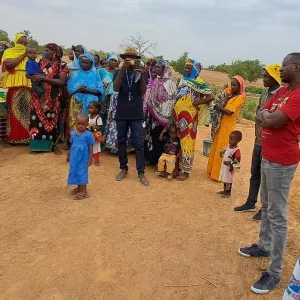How Youth and Women Are Key to Senegal’s Farming Future
The agricultural sector is one of the pillars of this central African country’s economy, with an estimated contribution of 15% to Senegal’s GDP in 2018. Furthermore, 60% of the population in rural areas continues to depend directly on farming for their livelihoods, according to the Food and Agriculture Organization of the United Nations (FAO). In Evaluating rural household well-being and

How Youth and Women Are Key to Senegal’s Farming Future
The agricultural sector is one of the pillars of this central African country’s economy, with an estimated contribution of 15% to Senegal’s GDP in 2018. Furthermore, 60% of the population in rural areas continues to depend directly on farming for their livelihoods, according to the Food and Agriculture Organization of the United Nations (FAO).
In Evaluating rural household well-being and empowerment among women and young farmers in Senegal, published in the international journal Data in Brief, researchers conducted a survey of over 1500 smallholder farming households from the Sedhiou and Tambacounda regions in southern Senegal, with 70 percent of respondents being women over 35 and 30% being people between the ages of 18-34.
“The idea of our review was to empower women and young people,” says lead author Cyrus Muriithi, a researcher and data analyst at the Alliance.
The researchers say that the data gathered in the survey highlights a significant knowledge gap about women and young people’s farming practices in the prevailing climate change conditions (droughts due to increasing temperatures).

